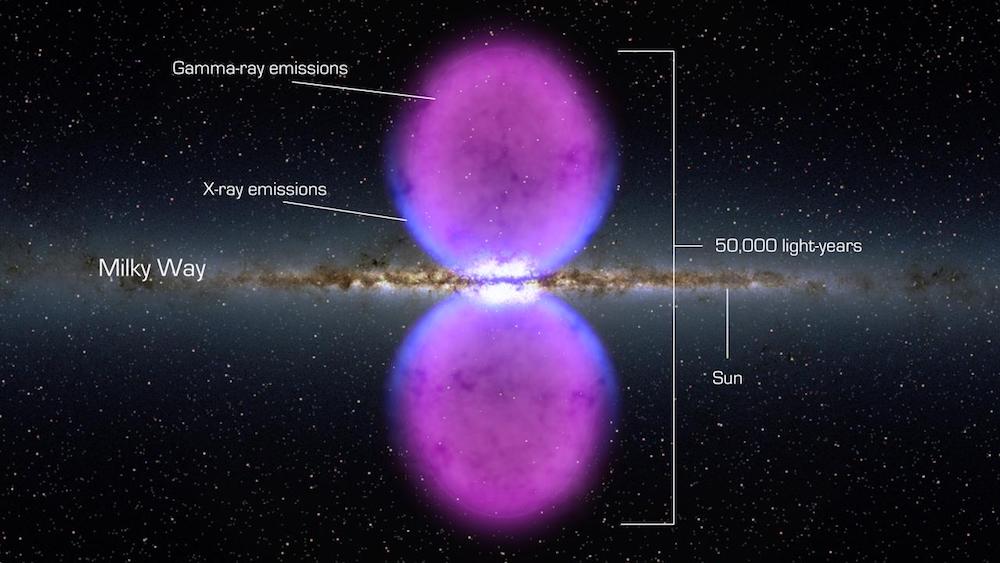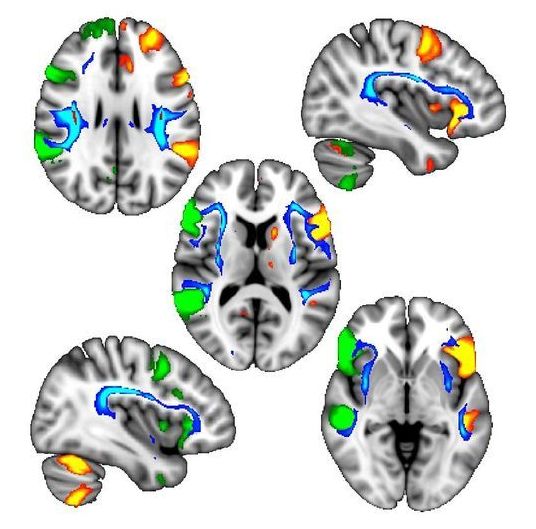BLACK holes could be a portal to another universe and our cosmos could have been born from one, a scientist has sensationally claimed.




A series of genetic variants can influence handedness, according to a new paper.
No, researchers have not discovered a “handedness gene.” But through brain imaging of 9,000 people in the United Kingdom, researchers devised a list of genetic variations that contribute to the way different brain processes end up on either side of the brain. This, in turn influences handedness—and can also influence whether someone will develop certain neurological diseases, according to the paper published in the journal Brain.


Safeguarding passwords, credit card numbers or cryptographic keys in computer programs will require less computational work in the future. Researchers at the Max Planck Institute for Software Systems in Kaiserslautern and Saarbrücken have come up with a new technology called ERIM to isolate software components from each other. This allows sensitive data to be protected from hackers when the data is processed by online services, for example. The new method has three to five times less computational overhead than the previous best isolation technology, making it more practical for online services to use the technology. This was reason enough for USENIX, a US-American computing systems association, and Facebook to award their 2019 Internet Defense Prize to the researchers.
Computer programs are like a fortress. Just as a fortress is protected by thick walls, moats and iron gates, firewalls and other security technologies prevent cyber criminals from maliciously exploiting software apps. And just as one poorly guarded gate or a supposedly secret escape tunnel may allow besiegers to capture a castle, all hackers need is a small security gap to gain access to all components of a software. In the worst case, they can then get their hands on the data that grants them access to user accounts or even allow them to make credit card payments. For example, the Heartbleed bug in the widely used OpenSSL encryption software made user names and passwords of various online services and programs vulnerable to hackers.

The future of technology relies, to a great extent, on new materials, but the work of developing those materials begins years before any specific application for them is known. Stephen Wilson, a professor of materials in UC Santa Barbara’s College of Engineering, works in that “long before” realm, seeking to create new materials that exhibit desirable new states.
In the paper “Field-tunable quantum disordered ground state in the triangular-lattice antiferromagnet NaYbO2,” published in the journal Nature Physics, Wilson and colleagues Leon Balents, of the campus’s Kavli Institute for Theoretical Physics, and Mark Sherwin, a professor in the Department of Physics, describe their discovery of a long-sought “quantum spin liquid state” in the material NaYbO2 (sodium ytterbium oxide). The study was led by materials student Mitchell Bordelon and also involved physics students Chunxiao Liu, Marzieh Kavand and Yuanqi Lyu, and undergraduate chemistry student Lorenzo Posthuma, as well as collaborators at Boston College and at the U.S. National Institute of Standards and Technology.
At the atomic level, electrons in one material’s lattice structure behave differently, both individually and collectively, from those in another material. Specifically, the “spin,” or the electron’s intrinsic magnetic moment (akin to an innate bar magnet) and its tendency to communicate and coordinate with the magnetic moments of nearby electrons differs by material. Various types of spin systems and collective patterns of ordering of these moments are known to occur, and materials scientists are ever seeking new ones, including those that have been hypothesized but not yet shown to exist.



An Egyptain teenager has patented a next-generation propulsion system that could send spacecraft to other solar systems—without using a single drop of fuel. While it is not quite warp-drive technology, young physicist Aisha Mustafa’s system is based on quantum physics and could see mankind boldly go where no man has gone before.
This proves that anti gravity devices existed even back in 1975.
The wonders of magnetism and the linear motor are captured in this 1975 presentation by Professor Eric Laithwaite (1921−1997) former Professor of Heavy Electrical Engineering at Imperial College London.